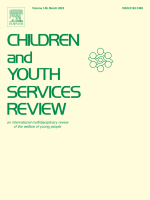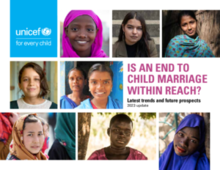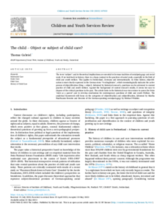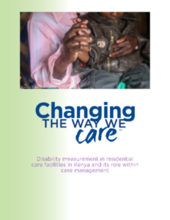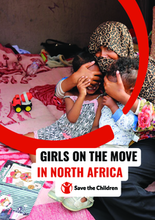Displaying 641 - 650 of 10391
This US-based study examined youth’s perspective of the quality of care and experiences in residential group care. This study was approved by an Institutional Review Board. Data were collected as part of a larger statewide pilot of the Quality Standards Assessment (QSA).
This study aimed to describe the perception of caregivers and the role of professionals in the process of family reintegration and adoption of children and adolescents with disabilities in a host institution in Belém/PA, Brazil.
The practice of child marriage has continued to decline globally. Today, one in five young women aged 20 to 24 years were married as children versus nearly one in four 10 years ago.
This paper is a first approach to pursuing questions of subjectification and objectification in the context of children and youth growing up in care settings in Switzerland.
Though research has been conducted on children with disabilities and on children in residential care settings, the intersections of these two topics has yet to be explored in depth. Notably, there is a lack of information surrounding disability measurement within residential care settings, highlighting a gap in the literature. It is estimated that a child with a disability is 17 times more likely to be placed in an institutionalized care setting than a child without a disability, and girls are more likely to be placed in an institution than boys. This report details research conducted in Kenya.
Drawing from the learning from participatory research in Latin America and the Caribbean as well as Australia, this webinar introduced different approaches used to engage individuals with lived experience of alternative care in research efforts.
The Alliance for Child Protection in Humanitarian Action , with the support of the Inter-Agency Network for Education in Emergencies, conducted participatory research to explore the impact of COVID-19 related school closures on children and young people in three humanitarian settings: Lebanon, Democratic Republic of Congo and Colombia.
This is the fourth webinar in the Family for Every Child's kinship care learning series which explored the different types of kinship caregivers (e.g. grandparents, siblings, aunts and uncles, male kinship carers, friends of the family) and how their different characteristics impact the risk and support needs of kinship care placements.
India has made remarkable progress toward ending child marriage according to this new UNICEF report, though this country remains home to the largest number of child brides worldwide. Despite advancements on many fronts, the rate of decline is not sufficient to reach the target of eliminating the practice by 2030, as set out in the Sustainable Development Goals.
This study aims to address a gap in migration research, by developing a holistic and gender-specific understanding of the migratory patterns and experiences of girls in, through, and to North Africa. To do so, the research team employed a qualitative research approach, informed by child- and gender-sensitive practices, to collect data from girls and boys in Italy, Spain, Morocco, and Tunisia.

